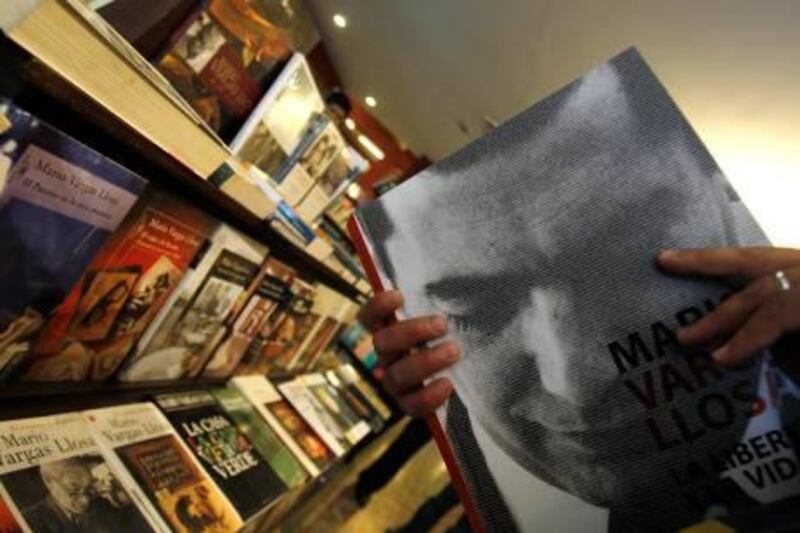It's been my long-held belief that, as the BRIC nations of Brazil, Russia, India and China continue their growth, the Gulf nations will be the next growth region over several decades, as reflected in Sultan Al Qassemi's article Linking capital's knowledge hubs can fulfil its vision (October 10). This is given their stable income source of oil, build-up of human capital, global trade, a flexible expatriate workforce and, above all, several visionary leaders like Sheikh Zayed who want to make it all happen in the right way.
Despite fear mongering, the GCC has certainly come out of the global financial crisis relatively unscathed. Abu Dhabi is becoming a knowledge hub, and has been relatively low key compared with its large neighbour about its vision. The author points to many such projects, and rightly emphasises the need to build a good network within which can then radiate outwards. It's the network effect which multiplies growth prospects and filters out weaker ideas to be replaced by stronger plans.
Abu Dhabi seems to have picked some customised development schemes (eg, Masdar City) as opposed to merely emulating US or European models. Much like East Asia's prosperous hubs today, as well as the former Venetian port cities known for their welcoming of art and culture besides trade and development, Abu Dhabi and others will be beneficial and peaceful global partners.
Athar Mian, UK
Nobel prize boost for South America
I refer to the article Vargas Llosa is named Nobel winner (October 8), it's wonderful to have another great South American Nobel Prize winner, the first since Gabriel Garcia Marquez (1982), and the first Spanish-language writer to win since Mexico's Octavio Paz (1990). Good on the Nobel committee this time for making it about literature and not politics as happened with Jorge Luis Borges, who never won the Nobel Prize because of his right leaning political ideology and, more specifically, because he had accepted an honour from the Chilean dictator Augusto Pinochet.
We can forgive the committee for excluding Proust and Kafka, as the bulk of their works were released posthumously, and the Nobel Prize can only go to a living writer. But they too often have ignored great writers around the world: Anton Chekhov, Leo Tolstoy, James Joyce, WH Auden, Robert Frost, Virginia Woolf, Arthur Miller, Vladimir Nabokov and Graham Greene. I don't think any of the winners of the prize last decade were as worthy as Milan Kundera. Kundera has done for his native Czechoslovakia what Marquez did for Latin America in the 1960s and Aleksandr Solzhenitsyn did for Russia in the 1970s.
Malik Mohammad Tariq, Dubai
Sharia law story lacked clarity
In Pitfalls of Oklahoma's Sharia ban vote (October 9), The National doesn't mention what part of Sharia law can be made into state or federal law in the US with the exception of the term "business". The article has no problem opining twice that there is an"anti-Islam fervour" and calling the state representative "proudly ignorant of Sharia law". Oddly, one of his sources states that Sharia law is misunderstood by many Muslims.
On the other hand, The National's cultural adviser, in his Ask Ali column in M Magazine, with pin-point accuracy clarifies a simple and common-sense law (Good Samaritan) meant to help and maybe save the life of a fellow human being: "It is not fully implemented to avoid legal complication."
Nicholas York, Abu Dhabi
Telecoms help not up to standard
Our Abu Dhabi business has been left without a working land line for the fourth consecutive day (which does include a weekend) and we are still unable to get satisfactory assistance from Etisalat.
This is the second time that we have been left without service recently. Last time it was the internet that wasn't working. We find it frustrating trying to get customer service via the 101 number, particularly when an automated message suggests that you visit the Etisalat website and the reason you are calling is because you can't get on the internet. The technical staff, we are told, will take 48 hours to attend to our fault which doesn't include weekends.
When we ask for a manager to discuss these issues, we are told someone will call us back and, of course, no one does. When we ask to speak to a technician we are told that it is not possible. We are told their customer service centre will e-mail their technical department, because they don't even have a number for the technical department!
Jonathan Hale, Abu Dhabi






